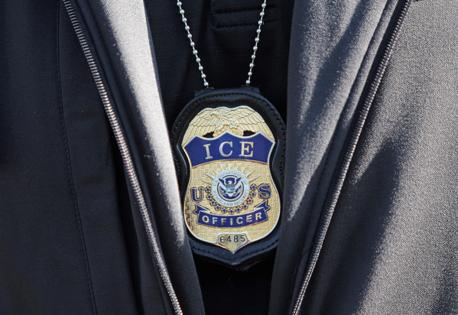Delaware bans controversial ICE partnership program
Published in News & Features
Delaware Gov. Matt Meyer has signed legislation to block local law enforcement agencies from partnering with federal immigration authorities to enforce immigration violations and share related data.
House Bill 182 targets 287(g), a rapidly expanding initiative in which state and local police help enforce federal immigration laws. The program is currently active across 40 states and, according to ProPublica, Immigration and Customs Enforcement signed 514 new agreements from January to June this year.
The program’s growth comes amid ICE’s nationwide crackdown on immigration. During the first 100 days of Donald Trump’s second presidency, the agency reported 66,463 arrests and 65,682 removals. In Pennsylvania and New Jersey, immigrant detentions have surged to levels not seen since 2011.
In his remarks Monday at the bill signing, Meyer said “there’s been an urgency for getting laws like this passed.”
“This is an attempt to say to communities in Delaware that law enforcement officials in Delaware are here for your safety,” he said. “They are here to protect you.”
Meyer also signed three other bills, ending citizen’s arrests, criminalizing the impersonation of a federal officer, and removing the authority for a private individual to execute a warrantless arrest of someone charged with a felony in another state.
Under 278(g), law enforcement agencies can participate in any of three programs: the “Jail Enforcement Model,” in which officers identify and process those with criminal or pending charges who are already in state or local custody; the “Warrant Service Officer Program,” in which ICE trains and authorizes officers to execute administrative warrants at jails on its behalf; and the “Task Force Model,” which allows officers to exercise limited immigration authority while performing their routine duties.
Delaware is the seventh state to restrict participation in 287(g), after Oregon, Connecticut, California, Illinois, Washington and New Jersey.
The bill’s supporters say collaboration between local law enforcement and ICE can take resources away from public safety duties and erode trust in local police departments.
“House Bill 182 is about increasing trust between the public and law enforcement. Our local police departments should be left to focus on community policing and building relationships in the precincts that they serve — not enforcing federal immigration law,” State Sen. Tizzy Lockman said in a news release.
ICE officials did not immediately respond to a request for comment.
In Pennsylvania, an increasing number of local law enforcement agencies have signed 287(g) agreements with ICE. According to data published by ICE, 18 agencies have joined the program since the beginning of this year. Seven others have pending applications.
In April, Bucks County, Pennsylvania, Sheriff Fred Harran announced plans to join 287(g), saying his office would participate in the “Task Force Model.”
The move was met with backlash from Bucks County commissioners and local advocacy groups. Last month, the ACLU of Pennsylvania, along with several advocacy groups, sued Harran to try to block the agreement.
Meanwhile, in an op-ed published in The Philadelphia Inquirer in May, Montgomery County officials promised to not sign a 287(g) agreement.
“We will not sign a 287(g) agreement, and our stance is rooted in constitutional principle, public safety, and fiscal responsibility,” Commissioners Neil Makhjia and Jamila Winder wrote.
The county also barred its employees from sharing information with ICE without a legal order.
_____
©2025 The Philadelphia Inquirer. Visit inquirer.com. Distributed by Tribune Content Agency, LLC.







Comments